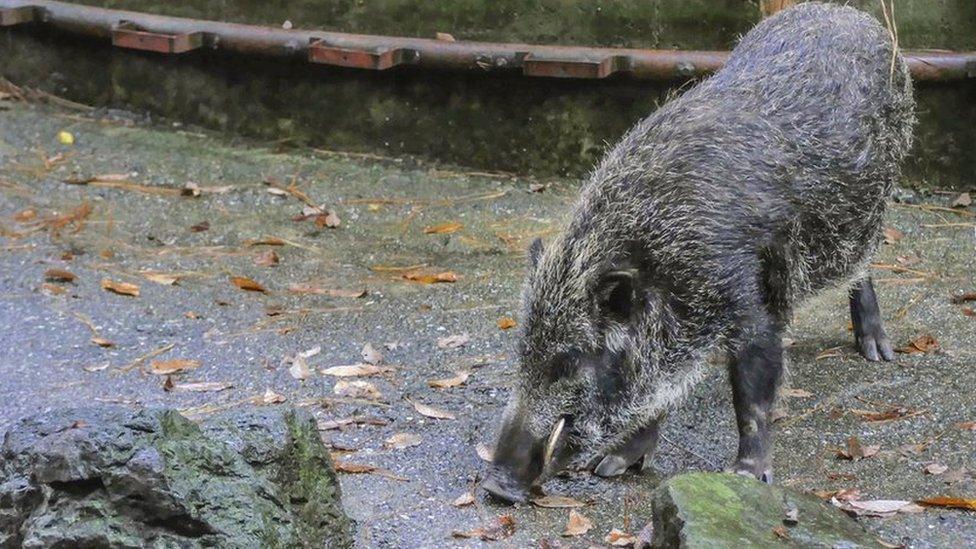Wild boar prompt alarm on tiny Japanese island
- Published

In traditional Japanese culture, wild boar are symbols of both fertility and fierceness
A soaring wild boar population is causing havoc on a small Japanese island where hogs now outnumber humans three-to-one, it's reported.
There are an estimated 300 boar on the southwestern isle of Kakara, which is home to a mere 100 people and covers an area of only 2.8 sq km (1.1 sq miles), the Kyodo news agency reports, external.
Locals say the animals are causing extensive damage, hampering their plans to make cosmetics from Kakara's wild-growing camellias, which islanders' hoped would attract much-needed tourist revenue.
The boar are also roaming close to people's homes, and many residents now only venture out in their cars, the report says. While nobody has been wounded yet, boar are known to occasionally charge humans, external and can cause severe injuries. Traditional Japanese culture credits them with a particularly fearsome reputation.
The animals are relatively new to the island - they're thought to have swum the 3km (1.9 miles) of sea from the Japanese mainland 15 years ago. But their numbers have rocketed since then, thanks to a lack of natural predators and a bounty of tasty local crops such as pumpkins and sweet potatoes, according to a local official.
Kakara's steep cliffs means hunting is out of the question, and even though 50 animals a year are caught using traps in bushes, they can't keep up with the sows, which produce five or six piglets a year. "People will be forced off the island if the current situation continues," one resident says.
Next story: China bans reality TV shows featuring celebrities' kids
Use #NewsfromElsewhere to stay up-to-date with our reports via Twitter, external.